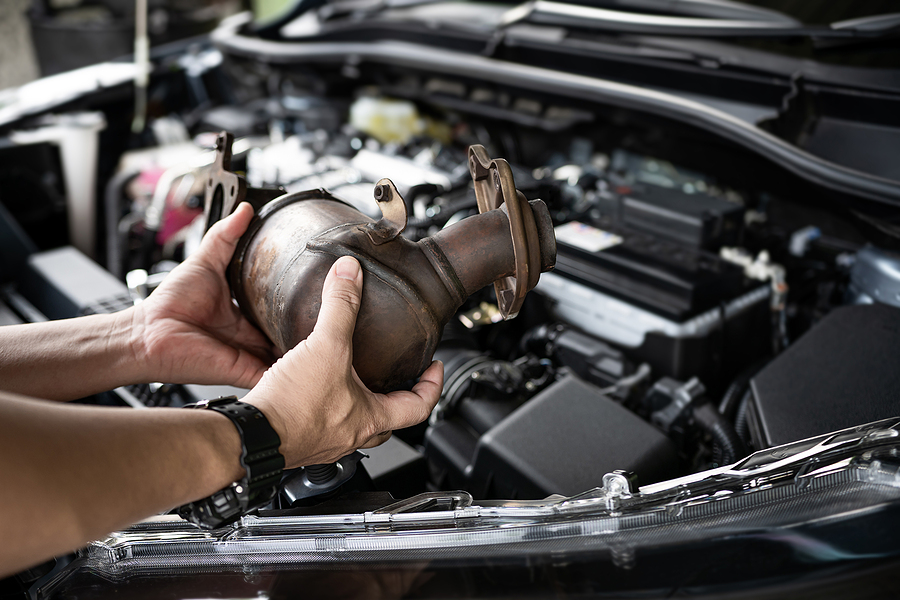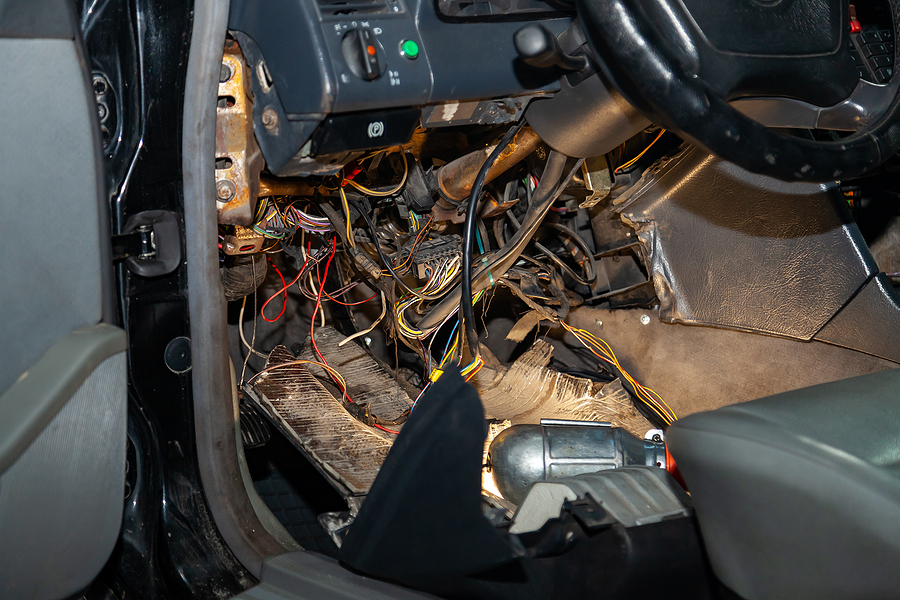Your old catalytic converter might be sitting in storage, but it’s actually worth more than you think. These automotive components contain precious metals that can put money back in your pocket while benefiting the environment through proper recycling.
Whether you’re an auto repair shop owner dealing with used parts daily or a mechanic looking for additional income streams, understanding catalytic converter recycling can transform what seems like automotive waste into valuable resources. The process involves more than just dropping off old parts—it requires knowledge of identification, valuation, and legal compliance.
Catalytic converters serve as your vehicle’s emission control system, converting harmful pollutants into less toxic substances before they exit through your exhaust pipe. Inside these honeycomb-structured devices lie precious metals including platinum, palladium, and rhodium—materials that make these converters incredibly valuable in the scrap metal recycling market.

Why Catalytic Converter Recycling Matters for Ohio
Recycling catalytic converters creates significant environmental and economic benefits for Ohio communities. These components contain hazardous materials that shouldn’t end up in landfills, where they can leach into soil and groundwater systems.
The precious metal content makes catalytic converter recycling particularly attractive from a financial perspective. Current scrap metal prices reflect strong demand for platinum, palladium, and rhodium—metals essential for manufacturing new catalytic converters and various industrial applications.
Environmental responsibility drives much of the recycling industry’s growth. When you choose proper recycling over disposal, you prevent toxic materials from contaminating local ecosystems while supporting sustainable precious metal recovery practices.
Identifying Valuable Catalytic Converters
Not all catalytic converters carry the same precious metal recycling value. Learning to identify high-value units can significantly impact your returns from scrap metal recycling activities.
Vehicle Type and Age
Luxury vehicles and trucks typically contain catalytic converters with higher precious metal concentrations. Newer models often feature more sophisticated emission control systems, translating to increased catalytic converter value.
Physical Characteristics
Examine the converter’s size, weight, and construction materials. Heavier units usually contain more precious metals, while ceramic honeycomb interiors indicate higher-grade materials compared to metallic alternatives.
Manufacturer Markings
Look for stamped numbers, letters, or manufacturer codes on the converter’s exterior. These identifiers help recycling centers determine exact precious metal content and provide accurate pricing.
Serial Numbers
Document any visible serial numbers or identification codes. This information proves essential for legal compliance and ensures you receive appropriate compensation based on the converter’s actual value.
Where to Recycle Your Catalytic Converters
Ohio offers multiple options for catalytic converter recycling, each with distinct advantages depending on your specific needs and location.
Local Metal Recycling Centers
Established scrap metal recycling facilities provide transparent pricing and immediate payment for catalytic converters. These centers typically offer competitive scrap metal prices and handle all necessary documentation for legal compliance.
Online Buyers
Digital platforms connect sellers with specialized catalytic converter recyclers nationwide. Online buyers often provide shipping materials and detailed valuation processes, making them convenient for Ohio residents in rural areas.
Get Your Automotive Scrap Appraised Today! ✨
Financial Benefits and Market Trends
The precious metal recycling market directly influences catalytic converter value, creating opportunities for substantial returns on seemingly worthless automotive waste.
Current market conditions show strong demand for platinum, palladium, and rhodium across multiple industries. Automotive manufacturers require these metals for new catalytic converter production, while electronics and jewelry industries compete for limited supplies.
Price Volatility Considerations
Precious metal prices fluctuate based on global supply and demand factors. Monitoring market trends helps you time your catalytic converter recycling activities for maximum financial benefit.
Volume Advantages
Auto repair shops and mechanics handling multiple converters simultaneously often negotiate better scrap metal prices due to volume considerations. Building relationships with recycling centers can lead to preferential pricing arrangements.
Quality Assessment Impact
Higher-grade catalytic converters from luxury vehicles or newer models command premium prices. Understanding how recyclers assess precious metal content helps you set realistic expectations for different converter types.
Legal Requirements in Ohio
Ohio has implemented specific regulations governing catalytic converter recycling to combat theft and ensure proper documentation of all transactions.
Identification Requirements
Sellers must provide valid government-issued identification and complete transaction records. This documentation helps recycling centers verify legitimate ownership and maintain compliance with state regulations.
Vehicle Information
Many facilities require information about the vehicle from which the catalytic converter was removed. This includes make, model, year, and VIN when available, creating a clear chain of custody.
Transaction Recording
Licensed recycling facilities maintain detailed records of all catalytic converter purchases, including seller information, converter descriptions, and transaction amounts. These records help prevent illegal activity and protect legitimate recyclers.
Local Ordinance Variations
Regulations may vary between Ohio cities and counties. Check with local authorities to understand specific requirements in your area before attempting to recycle catalytic converters.
Penalties for Violations
Selling catalytic converters removed from stolen vehicles constitutes a felony in Ohio. Ensure you only recycle converters from vehicles you own or have explicit permission to dismantle.
RECAP
Catalytic converter recycling represents a win-win opportunity for Ohio’s automotive professionals and environmentally conscious residents. The combination of precious metal value, environmental benefits, and legal income generation makes this recycling practice both profitable and responsible.
Understanding proper identification, valuation, and legal compliance ensures you maximize returns while contributing to sustainable precious metal recovery. Whether you’re managing an auto repair shop or working as an independent mechanic, catalytic converter recycling can provide meaningful additional income streams.
Ready to turn your old auto parts into cash? Contact us today to inquire about our car part recycling services in Cincinnati, Ohio. We’ll help you navigate the process while ensuring full legal compliance with state regulations. Apologies-we do not accept catalytic converters or tires. We do buy metal wheels and rims.
Speak With an Auto Scrapper Now
Related Post: The Ultimate Guide to Recycling Auto Parts

